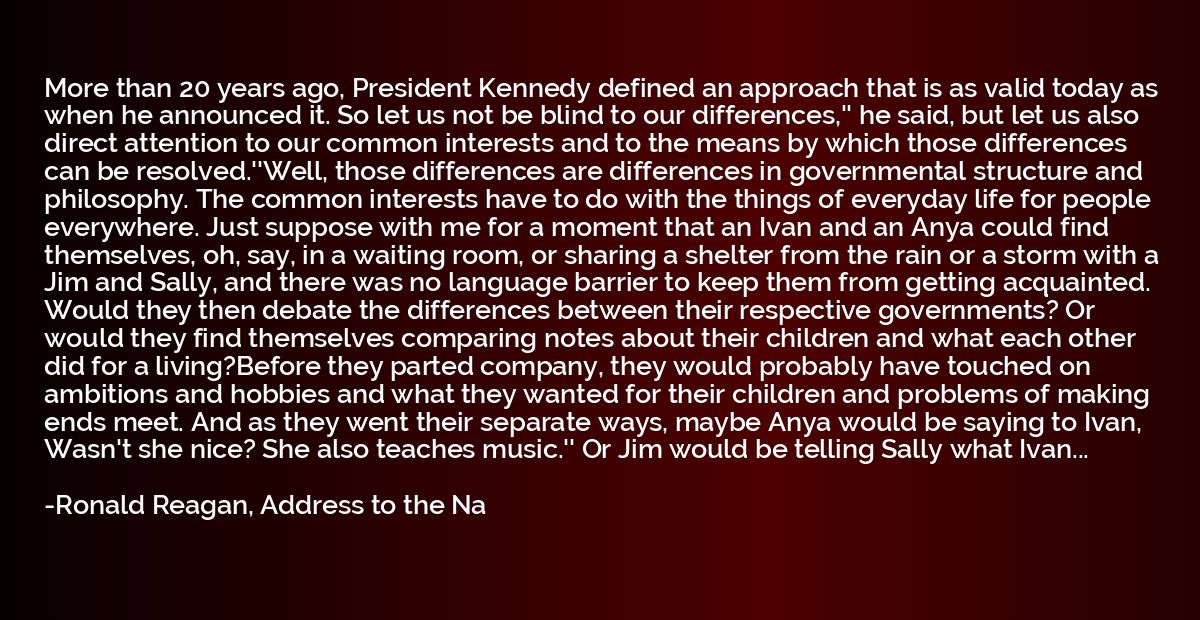Ronald Reagan, Address to the Na Quotes
A collection of quotes by Ronald Reagan, Address to the Na.
Ronald Reagan (1911-2004) was an American politician and actor who served as the 40th President of the United States from 1981 to 1989. Born in Tampico, Illinois, Reagan initially pursued a career in radio and film, becoming a popular actor in the 1940s and 1950s.
Reagan's political journey began in the 1960s when he switched his affiliation from the Democratic Party to the Republican Party. He successfully ran for the governorship of California, serving two terms from 1967 to 1975. As governor, Reagan implemented conservative policies and gained national attention for his effective leadership and economic reforms.
In 1980, Reagan ran for president, campaigning on a platform of limited government, lower taxes, and a strong national defense. He defeated the incumbent President Jimmy Carter and became President in 1981. Reagan's presidency is often associated with the conservative movement, and his policies became broadly known as Reaganomics.
During his two terms as president, Reagan focused on revitalizing the American economy, reducing government regulations, and enforcing conservative values. He advocated for tax cuts, deregulation, and increased military spending. Reagan also played a significant role in the Cold War, putting pressure on the Soviet Union and contributing to its ultimate collapse.
Reagan's presidency was marked by both economic prosperity and controversy, but he remains a prominent figure in American politics. Known for his optimism, charisma, and effective communication skills, he is often referred to as the "Great Communicator." After leaving the presidency, Reagan retired to California, where he continued to be involved in public speaking and advocacy until his death in 2004.




